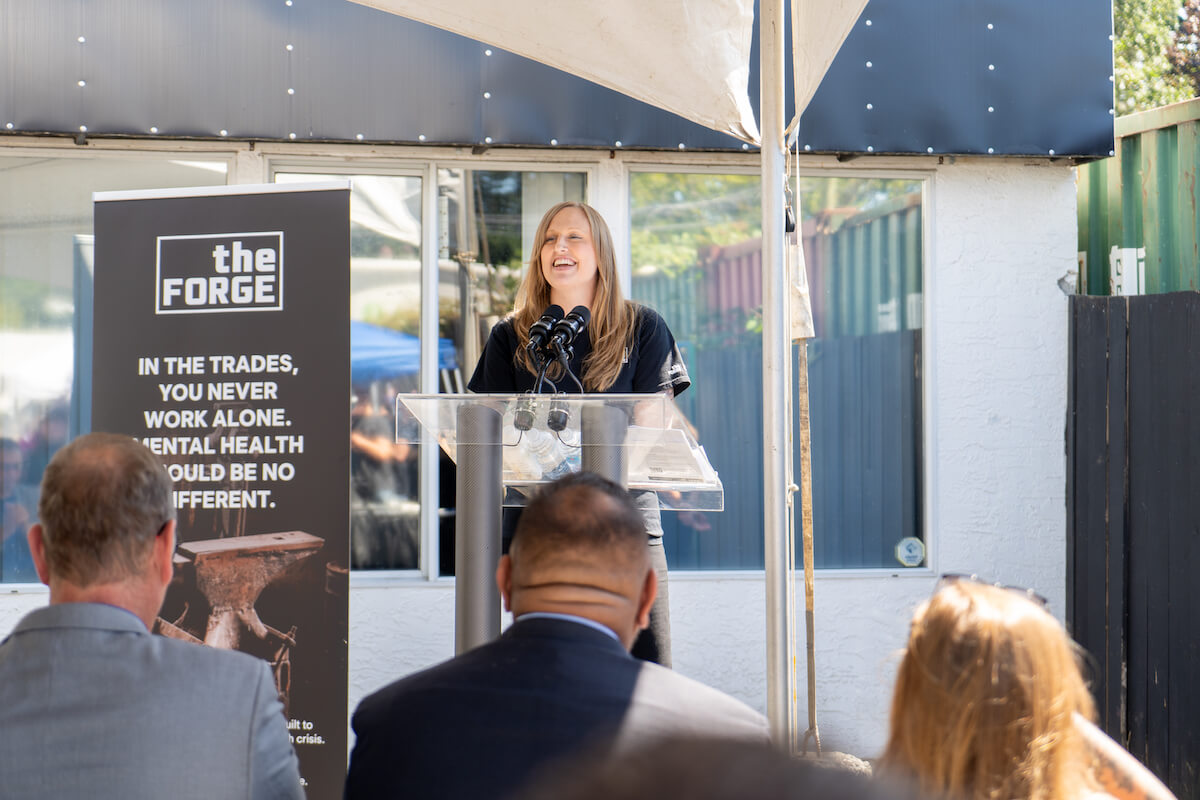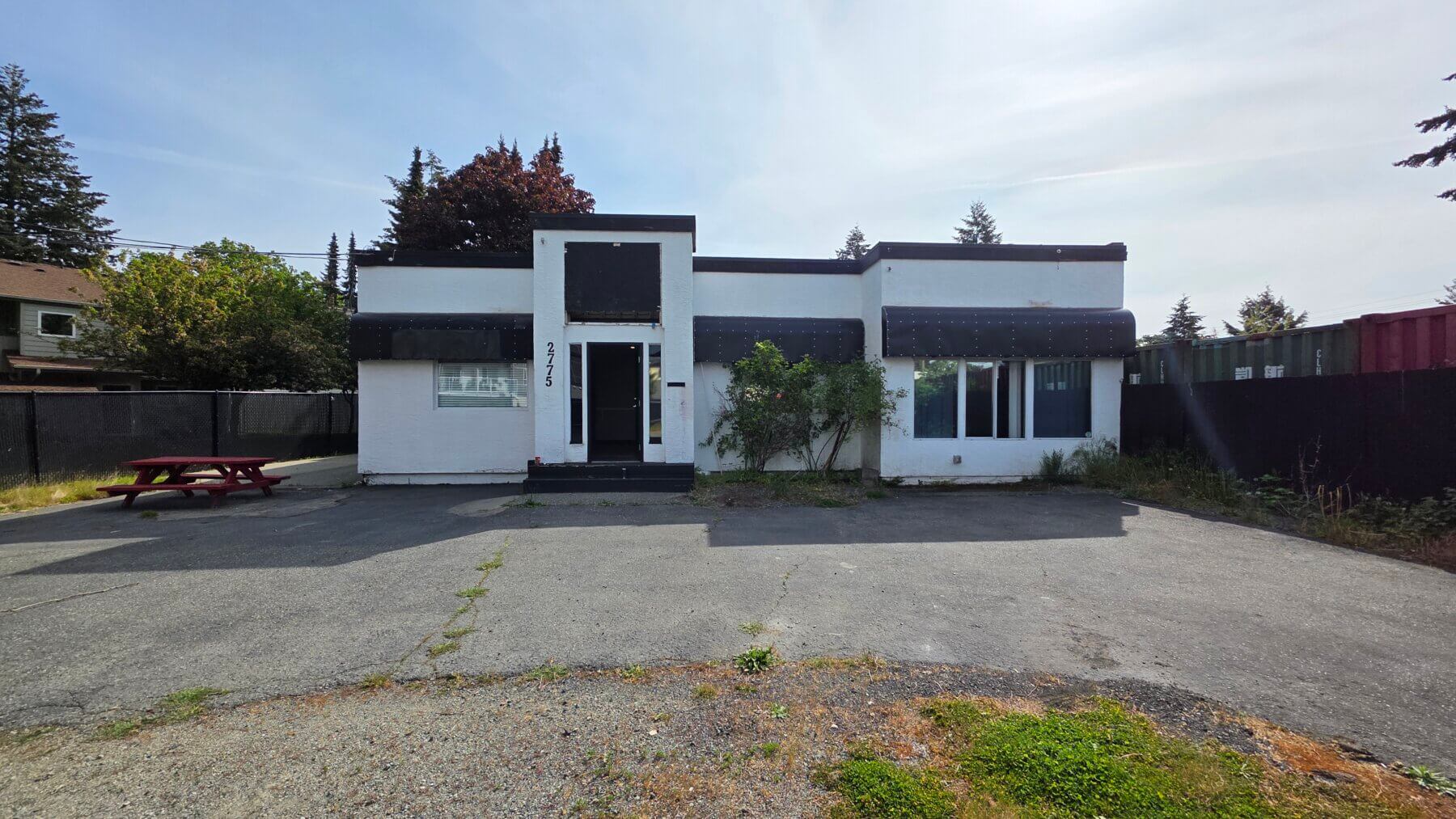Reforged: Peer support model aims to reach struggling workers
The Forge will train tradespeople to provide stigma-free, culturally specific guidance and connection.

Key Takeaways:
- The Forge is transforming a former biker clubhouse into a recovery and community space, supported by an upcoming app, and aims to shift construction culture toward openness, belonging, and celebration of recovery. There is already strong demand and waitlists for peer training.
- The Forge trains tradespeople with lived experience to act as peer supporters, providing stigma-free, culturally specific guidance and connection. Training includes trauma-informed practices, boundaries, and recognizing when someone is struggling.
- Veteran carpenter Trevor Botkin and frontline mental health/substance use treatment expert Jenny Nadeau are leading the initiative on Vancouver Island
The Whole Story:
Six years ago Trevor Botkin was determined to end his life.
He’d never been more certain of anything. The experienced carpenter and superintendent was in the depths of addiction and saw death as his only escape.
“Every day was a revolving door. Same promises broken. I had convinced my mom I was spending my paychecks on maxed out credit cards but I was buying drugs,” he said.
His routine included drugs for the daytime to get through work and evening drugs to get numb after. Every morning he woke up up telling himself it would be his last day using, but the pattern repeated over and over.
“In the industry, I felt like I could build anything and do anything but this was so emasculating. I felt like a waste of skin, I hadn’t seen my daughters in a decade and it was hard to let other people know how disappointed I was in myself and how desperate I was to feel different.”
-Trevor Botkin
He planned to go into the garage while his mother was at work and commit suicide by leaving the his Jeep running. He felt completely committed to ending his life. But then something shifted. What stopped him wasn’t any profound epiphany. It was his pride.
“The thing I’m most confident in is that I am a hard worker and when people found out I had this problem, I didn’t want them to think I just gave up and didn’t even try.”
Six years of sobriety later, Botkin and a team of industry experts are leading a revolution on Vancouver Island to rescue other construction workers struggling with mental health challenges and substance use issues.
The Construction Foundation of B.C. (CFBC) has officially broken ground on The Forge, a new recovery model which aims to provide peer-led support tailored to the needs of construction and skilled trades workers. Much like the workers it looks to help, the facility itself is undergoing a transformation. Formerly a clubhouse for the Hell’s Angels-affiliated Savages biker gang, the site is being renovated to be a space to house recovery coaches, clinicians, and peer supporters.
Jenny Nadeau, CFBC’s Director of Outreach and Community Programs, is helping spearhead the project with Botkin and found her way to it from the other end of the spectrum. She’s spent the past 15 years on frontlines of substance use and mental health, helping connect people with treatment and life-saving tools.
“I met so many people utilizing the harm reduction services still working in the trades or who had to transition out and I was very taken aback,” she said. “The connection was very evident and I got curious about it.”

Many tools and programs have been created to help struggling construction workers but the CFBC wanted to get to the root of why they weren’t being fully utilized and how they could build something better.
“We looked at the sector through this lens of what is being offered and why people feel like it’s not for them,” she said. “There are so many opportunities to access recovery care and folks in the industry just don’t think it’s for them.”
Botkin, who has 30 years of experience in the skilled trades, explained that construction is a distinct culture.
“Like any other lifestyle occupation, like police or fire, we have a unique employee experience that becomes our identity, our families live this life with us, it comes with a preprogrammed worldview we download and it’s valuable to speak our language.”
Their answer is a new peer-led approach that trains tradespeople with lived experience to act as trusted supporters embedded in job sites and training programs. By having peers, rather than outside professionals, start conversations and provide guidance, the model reduces stigma, builds trust, and encourages workers to seek help. The goal is to shift construction culture toward openness around mental health.
Each peer supporter undergoes around 40 hours of training that includes information about self determination, boundaries, cultural humility, how to spot someone who is struggling, stigma, grief, loss and more, all run through a trauma-informed lens.
“Everything about the forge is worker driven, all filtered through steering committee of more than 20 workers,” said Botkin. “We knew from the start that if we don’t connect with people it doesn’t matter how good it is. The average worker deserves something for them, no fluff, built to the point, direct and grounded.”
The response has been overwhelming. The first cohort of peer supporters is already filled up and there is a waiting list for dozens more. The Forge is also preparing to launch an app this December that will connect struggling workers with peer supporters and connect them with other community organizations, like Pain BC.
The facility, once renovations are complete, will serve as a hub for mental health and recovery initiatives. It will also be a place for people to gather and celebrate their journey. “A big part of recovery is that it needs to be celebrated and there is a alot of camaraderie around people getting well together,” said Nadeau. “We celebrate or suffer. Community and belonging is what long term recovery looks like.”
